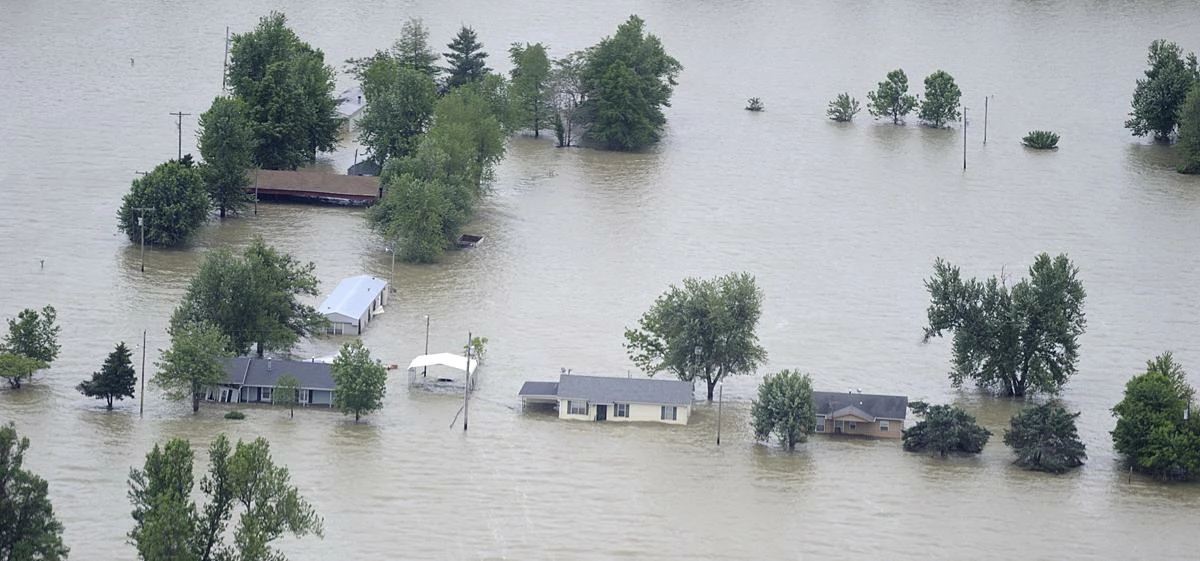
Partner Article
Why Flood Re is merely a sticking plaster
Ahead of the April launch of Flood Re, the Government’s new scheme promising affordable home insurance for flood prone regions, Harris Balcombe, Britain’s leading loss assessing and claims consultancy, is urging the government to mirror the USA approach to flood mitigation and response which it delivers through The Federal Emergency Management Agency (FEMA).
The company highlights the many limitations of Flood Re, including the fact that whilst domestic households will benefit from the scheme, private rental landlords and businesses are excluded because their buildings insurance is deemed to be ‘commercial’.
Alex Balcombe, Director, Harris Balcombe says, “Even if Flood Re had been in place during the recent flooding, many flood-hit small businesses wouldn’t have received any support or compensation. KPMG[1] suggests that the economic impact of the floods will reach £5.8 billion and Flood Re couldn’t have met these costs. As a solution, it is unsustainable.
Flood Re is a sticking plaster and it won’t solve the underlying issues – climate change and the growing threat of flooding in Britain, including the need for homes and businesses to be adequately insured and protected. We agree with the Environmental Agency that a ‘complete rethink’ is required in terms of handling flood responses.“
According to the firm, Britain should look to the USA, where a more strategic and coordinated approach to flood mitigation has been introduced through The Federal Emergency Management Agency (FEMA), established in 1979.
FEMA brings together US government agencies, planners and the insurance industry to ensure joined-up and coordinated thinking and planning for flood mitigation and emergency disaster response. It coordinates responses to disasters in the USA and provides state and local governments with experts in specialised fields, as well as funding for rebuilding efforts and relief funds for infrastructure.
FEMA also ensures affordable flood insurance is available to homeowners and businesses in flood plains, through the National Flood Insurance Program (NFIP), and enforces no-build zones in known flood plains. It also seeks to provide appropriate disaster response for flood victims.
How FEMA operates
FEMA’s emergency response is based on small, decentralised teams trained in such areas as the National Disaster Medical System (NDMS), Urban Search and Rescue (USAR), and Mobile Emergency Response Support (MERS).
Alex Balcombe adds, “FEMA ensures better housing planning and reduced risk for homeowners and businesses through its flood plain mapping and analysis which is reviewed by planners, developers and estate agents to limit building and also banks to inform their mortgage decisions.
It also helps businesses and homeowners mitigate against disaster through pre-disaster mitigation grants which are available to acquire property for conversion to open space, retrofit existing buildings, construct tornado and storm shelters, manage vegetation for erosion and fire control, and small flood control projects.“
“With the flooding in Britain becoming more intense each year, isn’t it time for the government to look at global best practice and put in place sustainable investment and planning to mitigate the risks when it comes to financial loss through flooding? The country needs more than a sticking plaster.”
This was posted in Bdaily's Members' News section by Alex Balcombe .
Enjoy the read? Get Bdaily delivered.
Sign up to receive our popular morning National email for free.








 Ready to scale? Buy-and-build offers opportunity
Ready to scale? Buy-and-build offers opportunity
 When will our regional economy grow?
When will our regional economy grow?
 Creating a thriving North East construction sector
Creating a thriving North East construction sector
 Why investors are still backing the North East
Why investors are still backing the North East
 Time to stop risking Britain’s family businesses
Time to stop risking Britain’s family businesses
 A year of growth, collaboration and impact
A year of growth, collaboration and impact
 2000 reasons for North East business positivity
2000 reasons for North East business positivity
 How to make your growth strategy deliver in 2026
How to make your growth strategy deliver in 2026
 Powering a new wave of regional screen indies
Powering a new wave of regional screen indies
 A new year and a new outlook for property scene
A new year and a new outlook for property scene
 Zero per cent - but maximum brand exposure
Zero per cent - but maximum brand exposure
 We don’t talk about money stress enough
We don’t talk about money stress enough